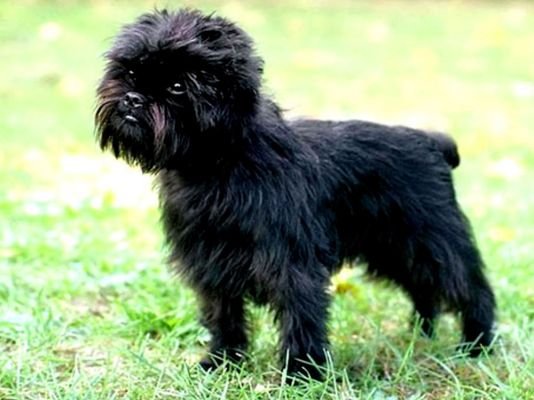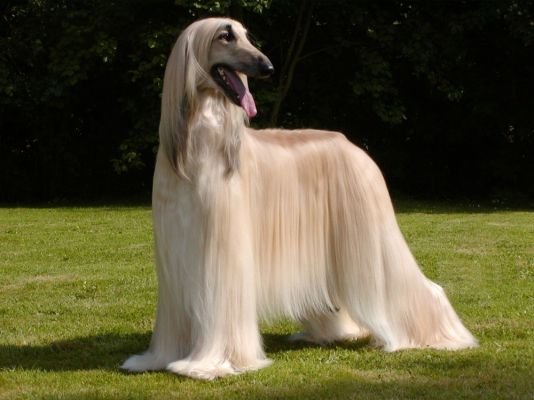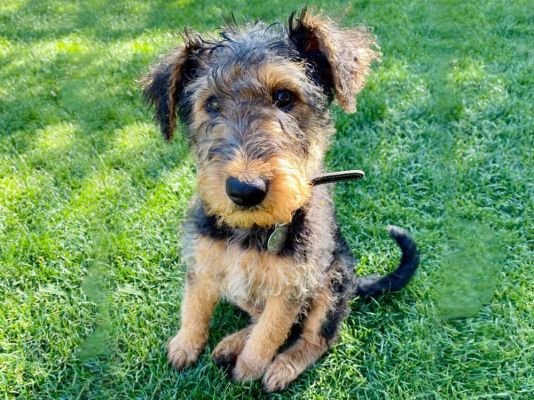
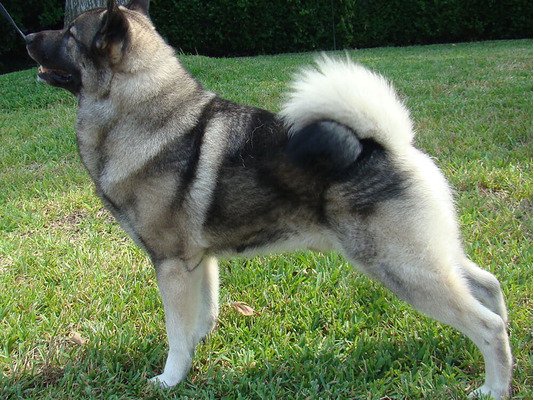
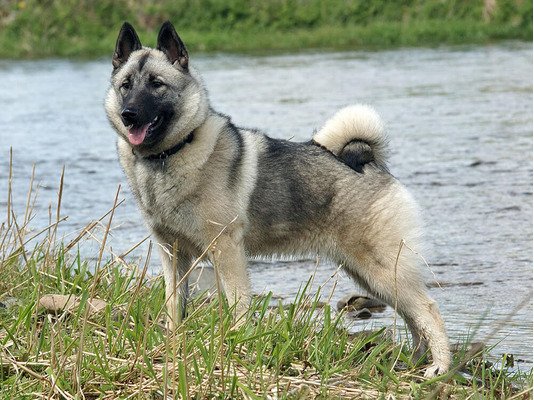
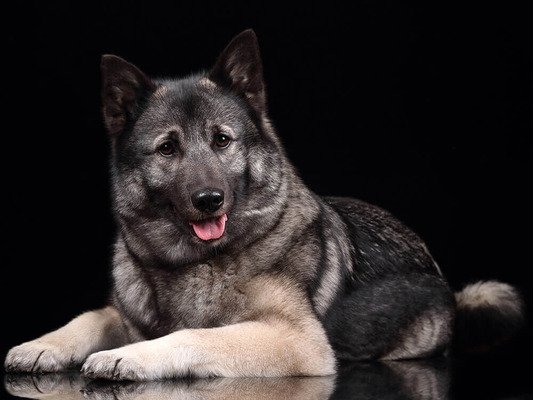
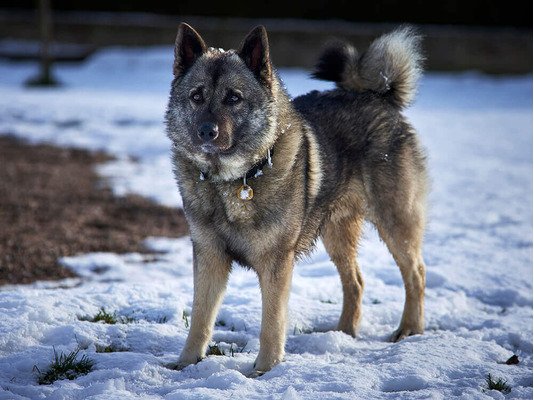
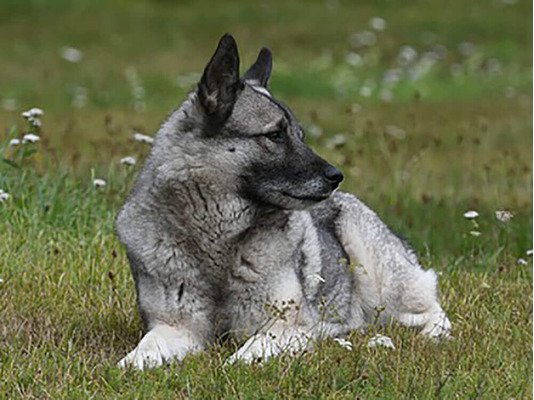
Meet the Norwegian Elkhound: The Viking-Era Adventurer with a Heart of Gold 🛡️
Imagine a dog that’s equal parts Arctic explorer, loyal guardian, and fluffy comedian – that’s the Norwegian Elkhound! Born to hunt moose in Scandinavia’s icy wilderness, this rugged charmer combines brains, bravery, and endless energy. With roots tracing back to Viking ships and ancient burial sites, owning one feels like adopting a living legend. Ready to see if this “grey ghost of the north” fits your lifestyle? Let’s dive in!
Quick Snapshot
| Trait | Details |
|---|---|
| Size | 19–21 inches, 48–55 lbs (think “compact tank with a wolf’s gaze!”) 🐺 |
| Lifespan | 12–15 years (they’ll outlast your car lease!) |
| Coat | Thick double layer – silver-gray with black tips ❄️ (sheds like a snowstorm!) |
| Energy Level | HIGH (1–2 hours daily – think hikes + backyard Olympics!) |
| Barking | “Alert mode ON!” (Great watchdog… but neighbors might need earplugs! 🚨) |
Looks & Grooming Hacks
This breed’s built for Arctic adventures:
- Winter Warrior Coat: That iconic gray fur isn’t just pretty – it’s waterproof and insulated! Brush weekly, but grab that slicker brush daily during shedding season (spring/fall). Pro tip: Use a de-shedding tool to battle the “fur-pocalypse”!
- Signature Features: Pricked ears that miss nothing, a tightly curled tail (perfect for nose-warming!), and dark almond eyes that say, “I’m 10 steps ahead of you.”
- Bath Time? Rarely needed – their coat’s self-cleaning! Just rinse after muddy hikes.
Fun Fact: Born with jet-black fur, their coat “silvers” like fine wine by age 2! 🍷
Personality: Loyal Protector or Class Clown?
Elkhounds are 60% Sherlock, 40% goofball:
- Family First: Fiercely loyal to their humans, gentle with kids (but may accidentally bowl over toddlers!). Supervise playtime.
- Stranger Danger: Wary of new faces but won’t attack – just bark until you confirm they’re friend, not foe. Early socialization is key!
- Brainiacs: Masters puzzle toys but debate why they should obey. Training tip: Use smoked salmon bribes and keep sessions short!
Warning: Left alone too long? Say goodbye to your couch cushions! Separation anxiety is real. 🛋️
Pros & Cons
| Pros | Cons |
|---|---|
| Hypoallergenic (low dander!) | Shedding season = daily vacuum marathons 🧹 |
| Excellent hiking buddy | Stubborn streak – “You want me to come? Let’s negotiate…” 💼 |
| Quiet cuddler post-exercise | High prey drive – squirrels/chickens beware! 🐿️ |
| Natural comedian | Not for couch potatoes – needs adventure! 🌲 |
Health Watch
Keep an eye on:
- Hip Dysplasia (common in active breeds – opt for breeders with health screens).
- Eye Issues (cataracts, progressive retinal atrophy – yearly vet checks!).
- Thyroid Problems (watch for sudden weight gain/loss).
Diet Tip: High-protein kibble (30%+ from salmon/lamb) for muscle power. Avoid grains – their sensitive tummies prefer gourmet! 🍗
Feeding Your Arctic Explorer
Fuel these foodies with 2–3 meals/day:
- Adults: 2–2.5 cups premium active-breed kibble.
- Snack Idea: Frozen green beans – crunchy + low-cal! 🥦
Avoid: Free-feeding – they’ll turn into fluffy snowballs! ⛄
Spotting a True Norwegian Elkhound
| Trait | Authentic Elkhound | Imposters! |
|---|---|---|
| Tail | Tightly curled over back 🌀 | Straight or loosely curled |
| Ears | Pricked, triangular 📡 | Floppy or rounded |
| Gait | Effortless trot (like a wolf!) 🐾 | Stiff or awkward |
Red Flags in Breeders:
- No health certificates (hips, eyes, thyroid).
- Puppies available immediately (ethical breeders have waitlists).
- “Rare white Elkhounds” – gray/silver only!
Final Thought
The Norwegian Elkhound isn’t just a pet – it’s a 6,000-year-old legacy of courage wrapped in a silver-gray hug. Ready for snowy hikes, hilarious antics, and a loyal shadow who’ll bark at delivery guys like they’re invading Vikings? Stock up on lint rollers… and maybe invest in a industrial-strength vacuum! 🐾
